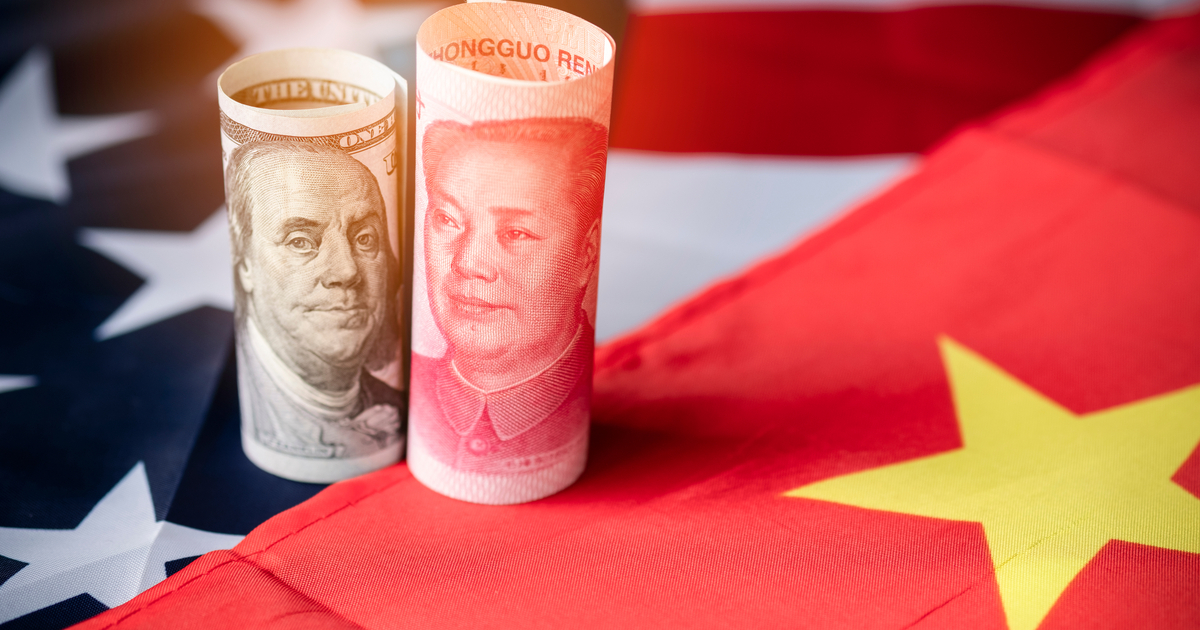From Terra-Luna to FTX, the crypto contagion is upon us – is this the beginning of the end?
The crypto industry has had a long history of failures and scandals. But far from being dead, cryptocurrency is merely evolving.

Disclaimer: Opinions expressed below belong solely to the author.
“Fortune favours the brave.”
With those four words, crypto mania peaked when Matt Damon lent his A-list status to front a commercial by Singapore-based exchange Crypto.com.
It was only slightly over a year ago when cryptocurrencies looked as if they were heading for the stratosphere — except, maybe not.
Following Damon’s words of wisdom, cryptocurrencies have suffered a precipitous fall in fortune. Bitcoin, the household name of cryptocurrency has plunged 70 per cent in value.
This means that if Matt Damon had convinced you to buy US$1,000 worth of bitcoin last November at US$60,000 a piece, it would now be worth less than US$300.
Is the endgame near for a mysterious industry that seemingly grew from nothing into a US$3 trillion market at its peak?
A crypto pandemic
Back in 2018, Nobel Prize-winning economist Paul Krugman made the following prediction:
The value of cryptocurrencies depends entirely on self-fulfilling expectations, which means that total collapse is a real possibility. If speculators were to have a collective moment of doubt, suddenly fearing that bitcoins were worthless, well, bitcoins would become worthless.
– Paul KrugmanOddly enough, Elon Musk did cause Dogecoin to fall in value after joking about it on a TV show.
Since then, the collision of macroeconomic challenges and poor risk management in the crypto ecosystem has led to massive losses and billions of dollars trapped on a defunct exchange.
In hindsight, Terra-Luna’s crash was, in fact, a warning; much like one of a series of unrelated events seen in a Hollywood movie that turned out to be a sign of a looming disaster.
With crypto companies so reliant on loans to each other, the collapse of the Terra blockchain had several knock-on effects. In particular, it led to the bankruptcy of Three Arrows Capital (3AC), at one point the most significant hedge fund in crypto.
But amidst bailouts and liquidity crisis, there was still a general sense of speculative optimism within the crypto community.
 Sam Bankman-Fried might have admitted to screwing up but it is a case of too little, too late / Image Credit: SBF@Twitter
Sam Bankman-Fried might have admitted to screwing up but it is a case of too little, too late / Image Credit: SBF@TwitterThat was the case until the implosion of FTX. When a rescue deal with Binance fell through, the third-largest cryptocurrency exchange became the latest casualty of the crypto contagion.
It is sensational news even to people with zero interest in crypto. Mainly, how did US$32 billion disappear overnight, with our sovereign-wealth fund Temasek turning from investor to creditor?
But for crypto enthusiasts, the fall of FTX is a catastrophic blow, sparking fears that a crypto sell-off could result in more firms folding up.
2022 has been crypto’s annus horribilis. And Sam Bankman-Fried — once the golden boy of crypto — is revealed to be nothing, but a financial charlatan. And sadly, his personal failings have threatened to bring down an entire industry that is still trying to find its feet.
Regulating the wild west of crypto
Considering how cryptocurrencies were conceived as a peer-to-peer digital-payments system that removed the need for financial intermediaries, regulating an industry with roots in decentralisation is going to be tricky.
However, with collapsing firms threatening local economies, governments worldwide are scrambling to develop a regulatory framework to tame this cowboy industry.
Krugman agrees that recent events have made clear the need to regulate crypto, but he also warns that crypto exchanges could become obsolete if regulators crack down on the industry.
The industry couldn’t survive regulation because they [crypto exchanges] wouldn’t be allowed to offer pie-in-the-sky returns to draw in customers.
– Paul KrugmanFollowing the events of 2022, the Monetary Authority of Singapore (MAS) has proposed measures to reduce the risks to consumers from cryptocurrency trading.
 MAS’ managing director Ravi Menon says is Singapore is looking to make it harder for the public to buy crypto, but will not ban such trading activities / Image Credit: Yahoo Finance
MAS’ managing director Ravi Menon says is Singapore is looking to make it harder for the public to buy crypto, but will not ban such trading activities / Image Credit: Yahoo FinanceIt is still early days to ascertain whether the proposals will work. After all, blockchain and crypto are relatively new, and there are no precedents on which governments can fall back for reference.
But one thing is for sure — without a sustainable cryptocurrency regulation process in place, it is unlikely that crypto can fulfil its full potential to democratise finance. Worse, it will become a predatory junkyard for criminals to prey on the vulnerable with get-rich-fast Ponzi schemes.
Not quite the end
The crypto industry has had a long history of failures, scandals, and criminality. But 2022, as a watershed year, has perpetuated that image even further.
For now, cryptocurrencies are finding themselves trapped within an information vacuum.
“The market is in a wait-and-watch mode to see whether there are any other entities that could fall as a result of being exposed to FTX,” Vijay Ayyar, vice president of corporate development and international at crypto exchange Luno, told CNBC.
However, market fluctuations are part of every investment journey. And despite the volatility of cryptocurrencies, there is still an allure surrounding them.
Firstly, the highly speculative nature of crypto is precisely what drives people towards it. It is akin to gambling, and rather than relying on sound investment principles, pundits are hoping for a payday without caring what goes on behind the scenes.
 Irene Zhao, a Singapore-based crypto influencer launched an NFT collection and made millions / Image Credit: CoinChapter
Irene Zhao, a Singapore-based crypto influencer launched an NFT collection and made millions / Image Credit: CoinChapterSecondly, non-fungible tokens (NFTs) are an emerging crypto technology gaining tremendous traction. From fashion houses to celebrities, unique digital assets are now sold via blockchain services, the future backbone of the internet.
Lastly, Singapore is keen to support the development of stablecoins as a credible medium of exchange in the digital asset ecosystem. It has already granted stablecoin issuers Circle and Paxos approval to operate in the region, with more expecting to land on our shores in the future.
Far from being dead, cryptocurrency is merely evolving. It might be a crypto winter, but as we all know, spring is just around the corner.
Featured Image Credit: Bitcoinist

 Lynk
Lynk 
































